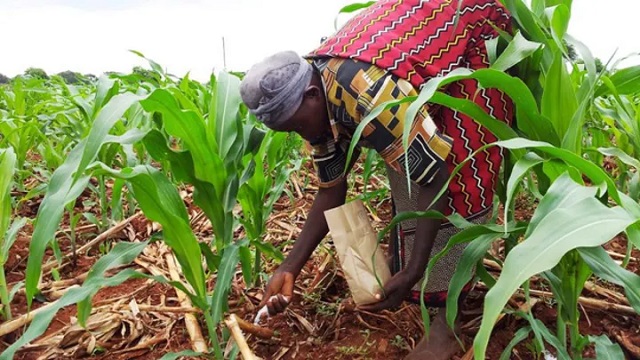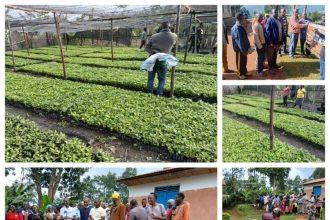Agricultural and soil experts are sounding the alarm over the country’s low uptake of fertilizers. Reports indicate that Uganda’s soil fertility and nutritional value have been gradually declining, leading to shifts in food-sourcing regions within the country. Experts warn that if this trend persists, it could ultimately result in the total extinction of vital agricultural resources.
On average, Uganda utilizes between 1.8 to 3 kilograms of fertilizer per acre, a significantly low figure compared to regional averages. During the launch of a new bio-fertilizer engineered using Danish technology, Prof. Julius Zaake, Uganda’s first soil professor, emphasized the urgent need for massive fertilization to rejuvenate the overworked soil in the predominantly agricultural nation.
Zaake highlights that despite Uganda’s commitment in 2006 to increase fertilizer usage to 50 kilograms per acre by 2015, the soil has been neglected and remains under-prioritized. This neglect threatens the achievement of commercial agriculture export targets and exacerbates soil degradation, posing a severe threat to agricultural productivity.
Addressing the issue of soil degradation, Zaake stresses the importance of raising awareness among Ugandans about sustainable soil management practices. He emphasizes that soil fertility is not permanent and underscores the need for concerted efforts to protect this crucial resource and enhance agricultural production.
With Uganda ranking among the lowest fertilizer users in Africa, Zaake warns of the unsustainable nature of agriculture in the country. He notes that this inadequate fertilizer use jeopardizes food security and contributes to declining yields, particularly affecting regions like the western area, which currently serves as a major food hub despite facing significant nutrient imbalances.
Alex Otuti, a senior agricultural inspector at the Ministry of Agriculture, acknowledges the challenges posed by degraded soils in certain parts of Uganda. He advocates for the strategic use of synthetic fertilizers to revitalize soil conditions, especially in severely degraded areas, while simultaneously promoting the buildup of organic matter for sustainable agricultural practices.
Otuti highlights the discrepancy in fertilizer usage between large-scale plantations and small-scale farmers, attributing the low national average to limited fertilizer adoption among the latter group. He stresses the urgency of addressing organic nutrient imbalances in the country to mitigate agricultural risks and enhance soil health.
Abdul Karim Dedya, the Country Director of Biofertilizer Africa Uganda Limited and Rootzone Africa, introduces a new bio-fertilizer called Transform, developed after three years of research. This locally manufactured product incorporates root zone technology to improve both soil and plant health, offering a promising solution to Uganda’s fertilizer challenges.




















